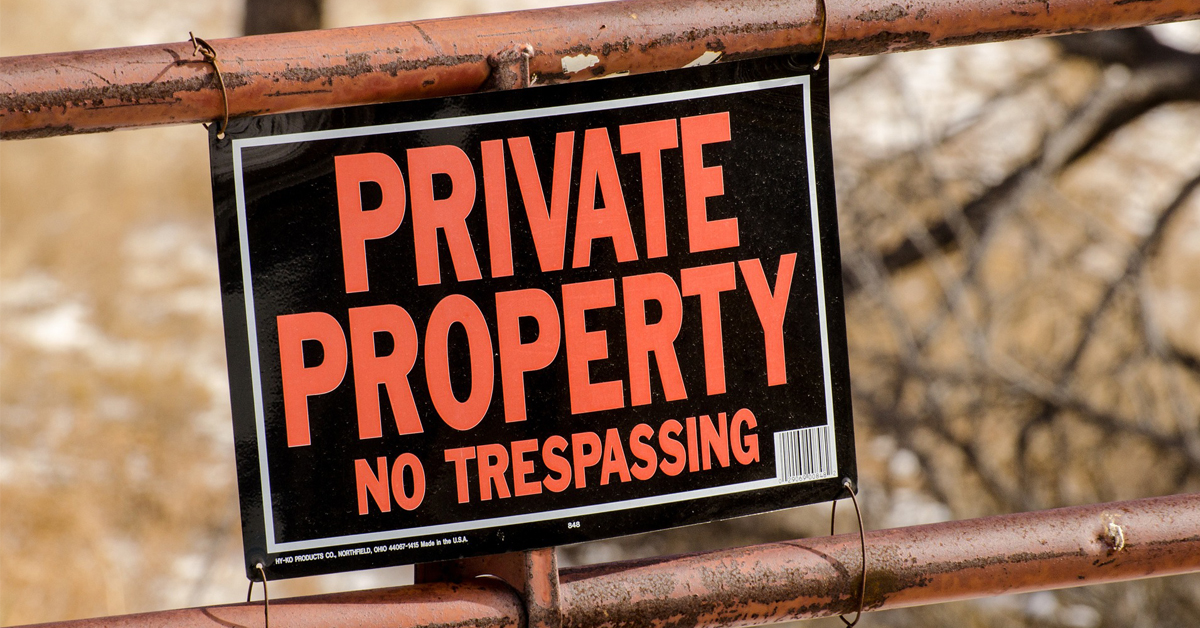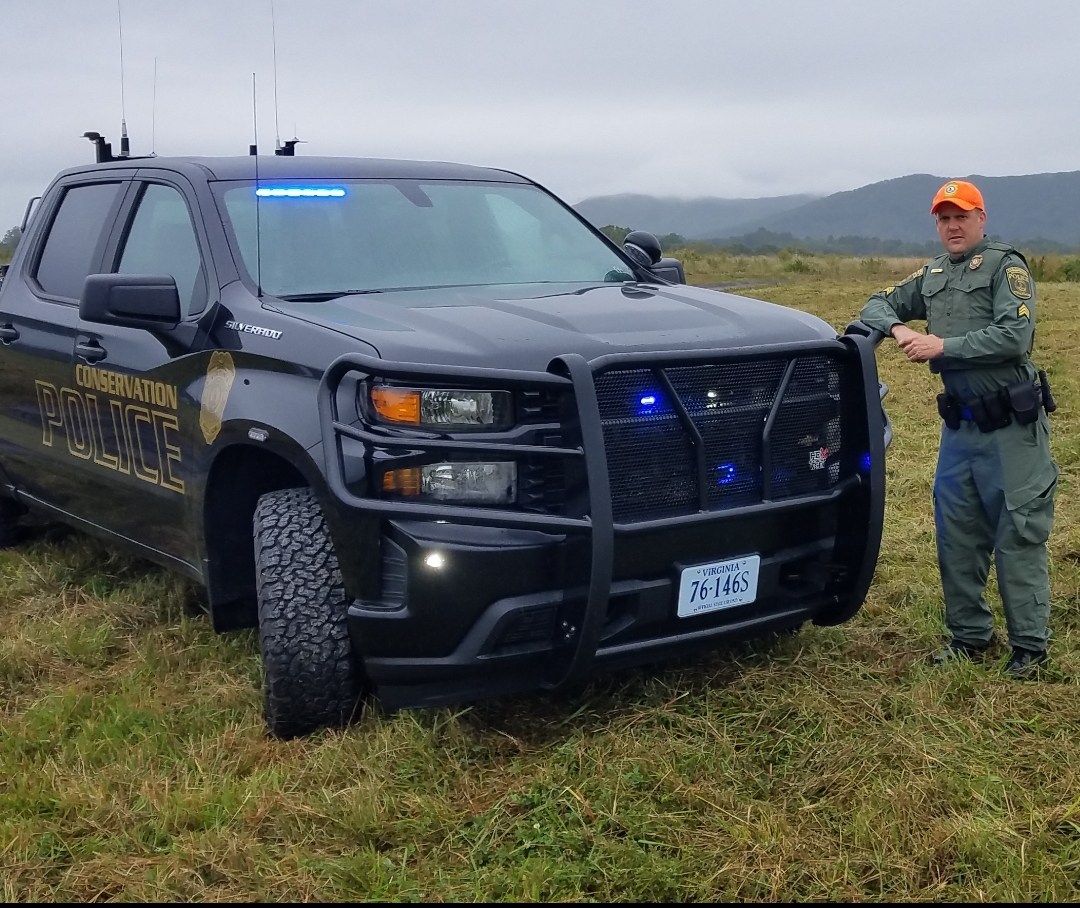
By Bruce Ingram
One evening, I was turkey hunting on my own land in Craig County. In the dark, while walking the property’s access road, I came across a strange truck. I took note of the license plate number. Walking around to the front of the vehicle, I noted someone inside and knocked on the window.
What followed was a tense exchange with a stranger and with him stating that “Ingram” had given him hunting permission. I am “Ingram,” and I didn’t know him and definitely hadn’t granted him hunting permission on my land. That exchange left me both angry and fearful and resulted in the stranger driving away.
When I arrived home, I called the Virginia Department of Wildlife Resources (DWR) Wildlife Crime Line (and eventually ended up talking to Conservation Police Officer (CPO) Sergeant John Koloda. After I gave a detailed account of what had transpired, Koloda patiently explained what I—and other Virginians—should and should not do when we encounter a trespasser.
- I correctly memorized the license plate, but given the possible failure of our memories, I should have had a pencil and paper with me and written out the numbers. With my cell phone, which had been left in my truck, I also could have taken a picture of the plate.
- The cell phone could also have been used to document the make, model, and color of the vehicle, none of which I did.
- I did make note of a sticker on the vehicle, which is fine, but it pales in importance to my not documenting what type of truck the trespasser was driving.
- Koloda also added that if one randomly comes across a trespasser, it helps if they can give even a vague description of the individual (for example, older, gray-bearded guy versus skinny teenager).
- If you encounter the trespasser in person while walking on your property, do not be confrontational, be nice, do not be accusatory, get as much personal information as you can from general discussion and report the incident as soon as practical. The law requires individuals found hunting on your property to identify themselves, but trying to ask for and obtain this information can increase the opportunity for conflict.
- I should not have knocked on the window and confronted the trespasser. For safety’s sake, I should have left immediately and, as soon as I gained cell reception, reported the violation.
Koloda was especially correct about the last point. After the trespasser left, I hunted for a little while but was too distraught to continue and so left for home. The hunt had been ruined. I was also so rattled that I detoured around the access road and sneaked back to my car, worried all the time that the trespasser was watching and waiting for me.

Report any suspected trespasser to the Department of Wildlife Resources so that a Conservation Police Officer such as Sergeant John Koloda can handle the incident.
It’s also a good idea to post your property with “no trespassing” signs or indicators. The owner or lessee of property may post property by (i) placing signs prohibiting hunting, fishing or trapping where they may reasonably be seen; or (ii) placing identifying paint marks on trees or posts at each road entrance and adjacent to public roadways and public waterways adjoining the property. Each paint mark shall be a vertical line of at least 2″ in width and at least 8″ in length and the center of the mark shall be no less than 3′ nor more than 6′ from the ground or normal water surface. Such paint marks shall be readily visible to any person approaching the property. Paint colors must be aluminum or purple.
Takeaway lessons? Be prepared beforehand to document everything you can about a possible trespasser. Take pictures. Then immediately leave, report the incident as soon as you can, and let the DWR professionals do their job. Wildlife violations and trespass incidents can be reported 24/7/365 by calling 800-237-5712, by emailing wildcrime@dwr.virginia.gov, or by texting DWRTIP + your message to TIP411 (847411).


